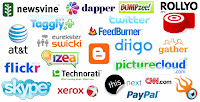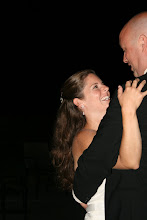
I just read the article by Will Richardson, "The New Face of Learning: The Internet Breaks School Walls Down". I found his thoughts to be very similar to my own when thinking about Web 2.0 and traditional education. I agree that there are educators out there who are intimidated by the big, bad internet and are not using the resources available to them because of their fear. However, there is a new generation moving into education and we are trying to change the idea that Web 2.0 does not have a place in school. A major role of the LMS is to make sure that technology is being taught and incorporated into lessons in the library. If there are teachers and administrators that are not familiar with these tools then they are most likely not going to use them in the curriculum. If the LMS stays connected to current technology then the students will be able to count on the library for their Web 2.0 needs. This is a great way to promote the library as well. Advertising our skills to teachers and students can only increase library use, especially when teachers do not want to teach technology in their classes.
We must reevaluate what literacy and education is in a time where information is plentiful. If this is the kind of education students are flocking to then we need to support that and make sure they are given the tools to successfully evaluate this information and use it responsibly.


